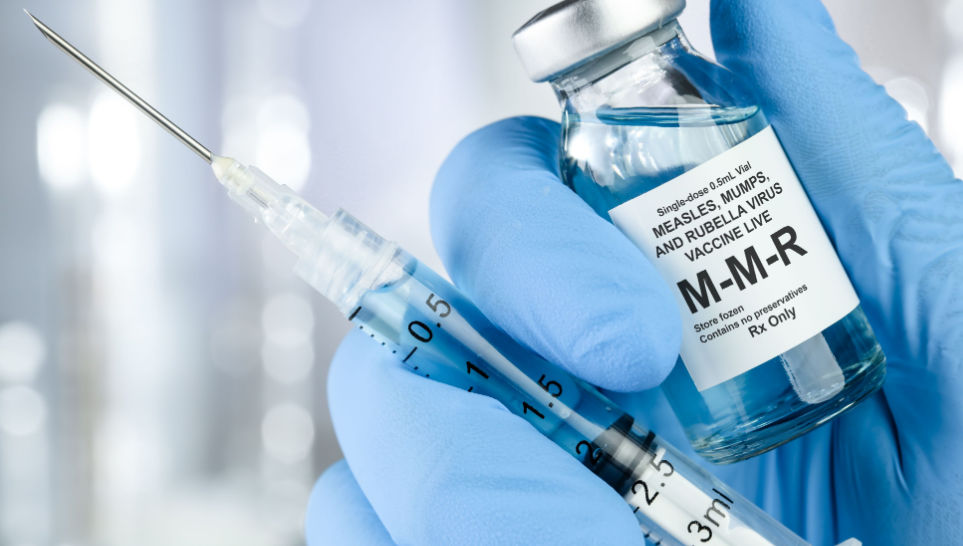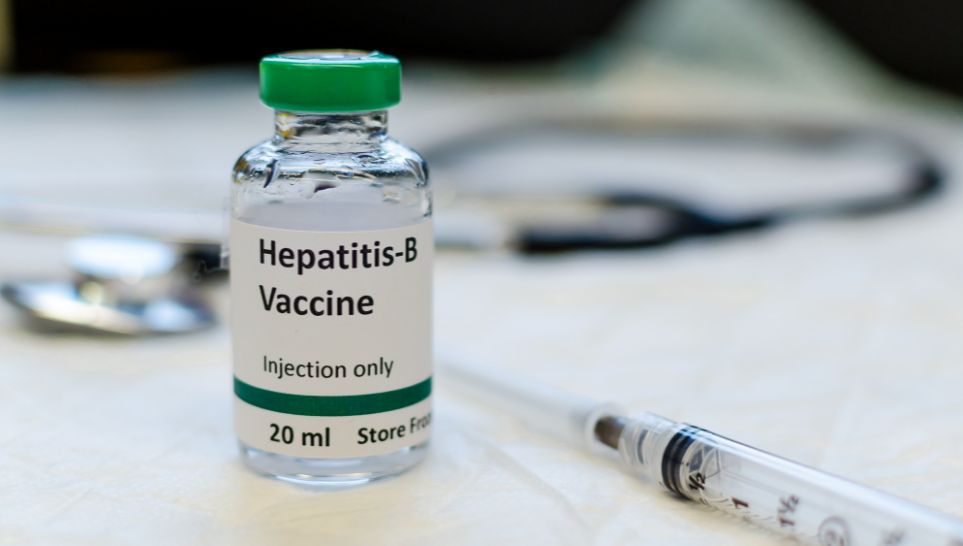
Decades ago, Rubella, measles, and mumps were devastating diseases that claimed the lives of hundreds of people while hospitalizing thousands in the United States. Fortunately, 1971 saw the introduction of the measles-mumps-Rubella (MMR) vaccine.
This vaccine made its mark in history by saving the lives of thousands of people.
The CDC (Center for Disease Control) estimated that measles, mumps, and Rubella infected nearly 4 million people in the U.S. annually ten years before the MMR vaccine. Thanks to this medical innovation, many children today enjoy immunity from measles, mumps, and Rubella, yet many parents and adult patients still question the potential dangers of the MMR vaccine.
Adults and children can experience symptoms and injuries after receiving the MMR vaccine, so it’s crucial to know how to identify them and when to get help.
Injuries You Can Get from an MMR Vaccine
Although vaccines save thousands of lives every year, not everyone has the same reactions. Some vaccines, such as MMR, can cause injury to patients who receive them.
The U.S. government established the National Vaccine Injury Compensation Program to compensate individuals who suffered vaccine-related injuries. On the program’s website, you can find a Vaccine Injury Table listing the various side effects of vaccines.
The Vaccine Injury Table links the following injuries to the MMR vaccine.
Encephalitis
Encephalitis is a severe condition that causes inflammation in the brain. Patients often suffer from this disease due to parasites, bacteria, fungi, or viral infections. However, in some cases, a person’s autoimmune response after receiving a vaccine (such as the MMR vaccine) leads to encephalitis.
People often confuse encephalitis and encephalopathy or use the terms interchangeably, but the two are not the same. Encephalopathy is a broader term for any disease affecting the brain or altering brain function. Encephalopathy encompasses various health conditions affecting the brain, including encephalitis.
Young children with encephalitis typically experience symptoms such as vomiting, high fever, lack of appetite, and even seizures. Meanwhile, adults and older children will have memory loss, a stiff neck, confusion, headaches, and memory loss.
Unfortunately, severe cases of encephalitis can cause death or coma, making it a devastating condition.
Some forms of encephalitis are treatable. For example, patients suffering from bacterial encephalitis will receive antibiotics. Meanwhile, those with autoimmune-related encephalitis may receive corticosteroids or immunosuppressive therapy.
ITP

Idiopathic Thrombocytopenic Purpura (ITP) is another potential injury of the MMR vaccine that reduces a patient’s range of motion while causing excessive bruising or bleeding. ITP is a bleeding disorder that prevents blood from properly clotting.
Although more research is needed to determine an official link, some studies suggest a potential connection between the MMR vaccine and ITP.
Patients diagnosed with ITP between seven and 30 days following an MMR vaccine are likely to suffer adverse side effects. In this case, the patient may be eligible for compensation should their symptoms persist for over six months.
Symptoms of ITP include:
- Mouth bleeding
- Nosebleeds
- Blood in urine or stool
- Blood in vomit
- Petechiae (small red dots on the skin)
- Purpura spots (bruises under the skin, typically around elbows and knees)
In the most severe cases, ITP can cause bleeding in the brain and blood disorders. Treating ITP as soon as possible is crucial for effective treatment.
Anaphylaxis
Anaphylaxis refers to life-threatening allergic reactions that require immediate medical attention. Those who suffer anaphylaxis due to the MMR vaccine will experience the symptoms within four hours of receiving the vaccine.
Patients experiencing anaphylaxis should seek immediate medical attention, as a severe allergic reaction can be fatal.
Vasovagal Syncope

Vasovagal syncope, or sudden fainting, results from a sudden heart rate and blood pressure drop. Although rare, some patients experience this unfortunate condition after receiving the MMR vaccine.
Fortunately, the condition itself is little more than frightening. However, unanticipated fainting can be dangerous, depending on where the patient is.
Chronic Arthritis
While there is no connection between the MMR vaccine and rheumatoid arthritis, some patients experience chronic arthritis following vaccine administration. Symptoms appear as many as 42 days after receiving the vaccine and can include severe joint pain, swelling, and inflammation.
Vaccine-Strain Measles Viral Disease
Vaccine-strain measles viral disease affects immunocompromised individuals who receive the vaccine and contract measles as a result. Although this issue is extremely rare, immunocompromised people must consult their physicians before receiving the vaccine.
Those who contract measles following vaccine administration with long-term side effects may be eligible for compensation.
Normal Vaccine Side Effects vs. Symptoms of an MMR Vaccine Injury

The MMR vaccine can cause a wide range of symptoms, depending on the type of injury and the patient’s reaction. However, it is crucial to remember that the MMR vaccine, along with others, will generally result in some minor side effects, such as:
- Soreness in the injection area (usually the arm)
- Mild rash or skin irritation
- Fever
- Temporary joint pain or stiffness
Fortunately, these symptoms subside in about a week and do not indicate anything serious.
On the other hand, MMR vaccine injuries will cause other, more debilitating symptoms. For example, patients suffering from shoulder injuries related to vaccine administration may receive a diagnosis of tendonitis, bursitis, or frozen shoulder syndrome (adhesive capsulitis).
In other cases, patients can suffer severe allergic reactions, sudden fainting (vasovagal syncope), seizures, vomiting, and fever.
Who Is in Danger from This Vaccine?

Although the MMR vaccine protects thousands of children and adults every year from potentially fatal diseases, it can cause adverse effects for some. Unfortunately, doctors cannot always predict who will suffer from an MMR vaccine injury.
However, certain people should avoid the vaccine entirely. According to the CDC, these people include:
- Those allergic to neomycin or other vaccine ingredients
- Those with cancer or receiving cancer treatment
- Patients with HIV or AIDS
- Those who had an allergic reaction to a previous MMR or MMRV dose
- Tuberculosis patients
- Patients on steroids or taking medications that impact their immune system
The CDC also encourages pregnant women, severely ill patients, recent blood transfusion patients, and those who received a vaccine in the last month to wait before getting the MMR vaccine.
Why Do These Injuries Occur?
Injuries from an MMR vaccine can occur for different reasons.
For example, the MMR vaccine can cause shoulder injuries when the medical professional injects it into the shoulder joint rather than the deltoid muscle. This error can inflame a patient’s shoulder tendons, ligaments, and joints.
Although soreness is a common symptom of most vaccines, it is temporary. If a patient suffers from shoulder injuries related to vaccine administration (SIRVA), they will feel extended soreness and a reduced range of motion.
Other injuries, such as anaphylaxis, occur when the patient is severely allergic to the vaccine.
Scientific Studies on MMR Vaccine Side Effects

Although the MMR vaccine is a notable advancement in modern medicine, it is not without controversy. Only 27 years after its inception, the MMR vaccine became the subject of a 1998 study. This study linked the vaccine to various health problems in children, such as IBS (inflammatory bowel disease) and autism.
While the result of this study caused a series of conversations and arguments, the study’s publisher, The Lancet, retracted its findings on the basis of inaccurate information and unethical practices.
Despite this retraction, the conversations continued, making many parents question the vaccine’s efficacy and potential dangers. Although many have researched to find the link between the MMR vaccine and autism or IBS, there is little to no information suggesting a connection.
In 2001, the Western Journal of Medicine reported an increasing number of autism diagnoses. This study noted that the rise in diagnoses began around 1979, not long after the MMR vaccine was introduced. However, the report suggested that this growing number was unrelated to the vaccine. Instead, it was due to a change in diagnosis methods for autism.
The numerous studies attempting to connect the MMR vaccine to autism and IBS sparked the conversation about the potential dangers of the MMR vaccine. Although few studies provide evidence supporting a connection to autism, there are various reports of the vaccine causing adverse side effects, ranging from mild to severe.
Can You Receive Compensation if Injured from an MMR Vaccine?

If your doctor diagnoses you with an MMR vaccine injury, you could potentially file for compensation. The Vaccine Injury Compensation Program requires the following situations for patients to be eligible for compensation:
- You experience anaphylaxis within four hours of receiving the MMR vaccine.
- You receive an ITP diagnosis seven to 30 days after receiving the vaccine, and your symptoms continue for more than six months.
- You experience vasovagal syncope within one hour of the vaccine administration.
- You suffer from chronic arthritis symptoms seven to 42 days after receiving the vaccine.
If you don’t experience any of the above but still believe you are the victim of the dangers of the MMR vaccine, contact an attorney to discuss your options and determine eligibility.
How to Prove an MMR Vaccine Injured You
Although rare, MMR vaccine injuries are real and can have a lasting impact. Unfortunately, patients who suffer the dangers of the MMR vaccine often struggle to determine the best course of action.
The first thing to do when you start experiencing symptoms is to contact your doctor or primary care provider. Once you receive the necessary treatment, contact a lawyer to help establish a case and file a claim with the Vaccine Injury Compensation Program.
When attempting to prove an MMR vaccine injury, documentation is critical. Doctors can file a report on the VAERS (vaccine adverse event reporting system) website. Once your doctor does this, it will be significantly easier to prove an MMR vaccine injury, as you can use this documentation for evidence. Your attorney can also help you file a VAERS report to further your case.
Most cases for MMR vaccine injuries will be settled out of court, but some will require a court appearance. An attorney can walk you through the process and help you navigate the legal process.
Recent Cases of MMR Vaccines in Court

Although rare, some patients’ MMR vaccine injuries are severe enough for compensation and go to court. Below are a few examples of MMR vaccine injury cases that went to court.
Thrombocytopenia Purpura
An Alabama woman received the HepB and MMR vaccines. Shortly after, she developed urticarial vasculitis and thrombocytopenia purpura. Since these medical conditions resulted from the vaccines, the client received a settlement of $15,000.
Multiple Injuries due to MMR Vaccine
After receiving the MMR vaccine, a 49-year-old woman suffered multiple injuries, including myalgia, arthralgia, muscle weakness, myositis, bilateral bursitis, numbness, and pain. Her compensation for the case was a $20,000 settlement.
Wegener’s Granulomatosis and Arthritis
A North Carolina woman suffered from Wegener’s granulomatosis and rubella-induced chronic arthritis after receiving the MMR and Tdap vaccines. Her settlement was $225,000.
How to Find an Attorney to Represent Your MMR Vaccine Case
Suffering an injury due to an MMR vaccine is a frustrating and often confusing experience. From the pile of medical bills to navigating the various claims, filing for compensation can seem overwhelming. Fortunately, hiring an experienced attorney can help streamline the process.
The vaccine injury attorneys at Sadaka Law have experience in this field and know how debilitating MMR vaccine injury symptoms can be. Filing claims and gathering the necessary documentation to prove injury requires multiple steps and resources. We know this is challenging, so we do the hard work for you.
By acting as your legal guide, we can help gather the necessary documentation and file claims on time to strengthen your case. If the case goes to court, we will stand by your side and fight to prove your injuries resulted from the dangers of the MMR vaccine.
Contact our office today at 201-266-5670 to find an attorney to represent your MMR vaccine case.





